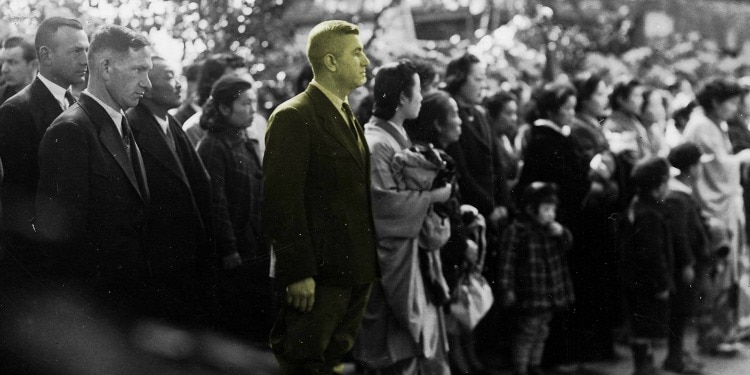The Untold Story of Japan’s Schindler
The Fellowship | September 18, 2019

We all know the story of Oskar Schindler, the German factory owner who employed Jews during the Holocaust in order to save their lives, and whose heroism was memorialized in Steven Spielberg’s important film, Schindler’s List. But another German also used his factory to save fleeing Jews during World War II. But this man, Willy Foerster, was forgotten after the war, as he was framed for atrocities by the very Nazis trying to escape accountability for their own. Writing for Tablet, Liane Grunberg tells advocate and ally of the Jewish people’s story:
On his way to the gallows, Josef Meisinger, a Nazi officer and pathological liar with a gangster’s disposition, committed a treacherous act toward his archenemy. Meisinger turned his attention to a German-born anti-Nazi Tokyo factory owner named Willy Foerster and accused him of complicity in his own long list of Nazi crimes. And that is how Foerster, who might otherwise have been championed as a Japanese Oskar Schindler, was instead defamed and largely forgotten, his deeds remaining buried for decades beneath layers of deception.
The real story of Foerster’s actions during the war and Meisinger’s successful plot to defame him by spreading a false account was only chronicled for the first time in 2017 with the publication of Fall der Foerster, written by Dr. Clemens Jochem, a German scientist from Hamburg. The book, thus far available in the German language only, has remained largely unknown. But in an exclusive interview with Tablet Jochem sheds new light on his findings and the latest developments in the story, including the troubling role American forces played in upholding Meisinger’s accusations after the war, and the ongoing efforts to see Foerster recognized by Yad Vashem as a “righteous gentile.”
“What made me curious was a letter that Foerster wrote to Fritz Bauer, the famous attorney general who helped capture Adolf Eichmann,” Jochem told Tablet. “In this letter, Foerster gave a summary description of how he had employed Jewish refugees from the Holocaust. I really was astonished, because if Foerster’s story was true, he seemed to be some sort of second Oskar Schindler.”
There are limits to the comparison. Foerster was not carrying out his work inside of Nazi Germany and there were far fewer Jews who came to work for him than did so for Schindler. But the parallels between the two factory owners who sheltered Jews within their businesses at great personal risk are striking…
